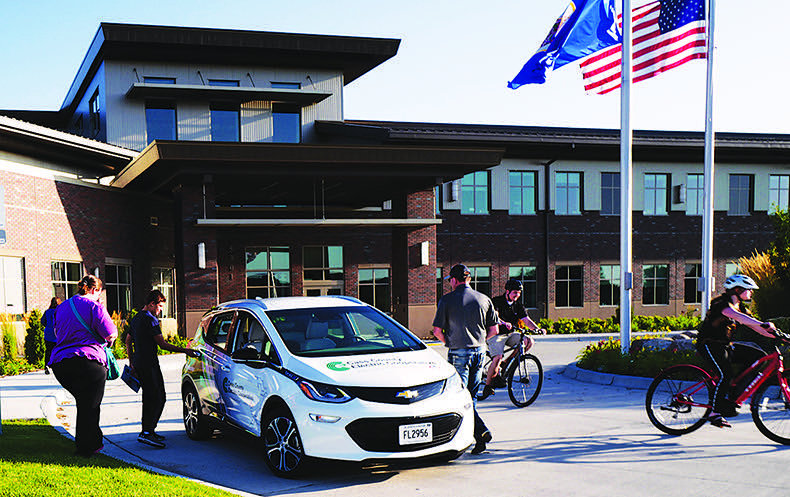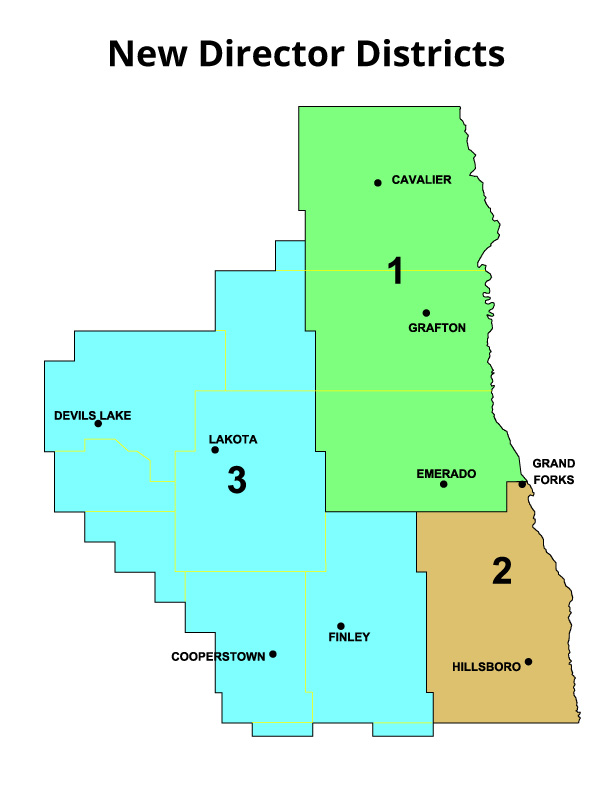Thank You For Your Membership
“Feeling gratitude and not expressing it is like wrapping a present and not giving it.”
In the spirit of this quote by author William Arthur Ward, I’d like to take this opportunity to express my gratitude for your membership in our electric cooperative. Because of your connection to Nodak Electric, we are able to make our community a better place.
I generally use this space to provide updates on the goings-on at Nodak, and report on the progress of our activities. We share these updates so that all of our member-owners have a window into our priorities, progress and challenges. However, during this season of giving thanks, I think it’s equally important to let you and other member-owners of Nodak Electric know just what impact you have on our co-op and the greater community, likely in ways you may not even realize.
As part of our cooperative business model, one of our core principles is “Concern for Community.” While our priority is always to provide safe, reliable and affordable energy, we view our role in the community as a catalyst for good.
We work with local colleges to award scholarships to future lineworkers, and with local high schools to participate in an annual youth tour where we take our area’s brightest young people to Washington, D.C., for a weeklong immersion to experience democracy in action. The trip is inspirational for many students, and we are both humbled and honored to be part of this leadership development journey. Ultimately, the larger community benefits from these programs because of you. You empower the co-op through your membership.
As a local business, we have a stake in the communities we serve. That is why we support local activities and work to make a difference in people’s lives through programs like Operation Roundup. Operation Roundup has donated $933,481 to individuals and organizations in our area since it began in 2000. When you support these efforts, you are supporting our local communities and making them better places to live for everyone.
When you attend co-op events, alert us to problems, or provide suggestions, you help us improve operations and thereby better serve the larger co-op membership.
Because we are locally governed by members of our community, we are able to get a firsthand perspective on community priorities, thereby enabling us to make more informed decisions on long-term investments.
We are thankful that our co-op board members carve out time to attend important training sessions, participate in planning meetings and keep abreast of industry trends. This investment in time results in better informed advisors that serve the co-op’s interest in a way that our member/owners expect and deserve.
On a more personal note, we appreciate the countless acts of kindness our lineworkers and other employees receive when they are working in severe weather and dangerous conditions. Our employees are thankful for your patience and consideration when we’re trying to restore power during challenging situations and prolonged periods.
Nodak Electric was originally established almost 80 years ago to bring electricity to our area when no one else would. The cooperative is a reflection of our local community and its evolving needs. Together, let’s continue making our corner of the world a better place. We can’t do it without you, and for that, we are thankful for your membership.





